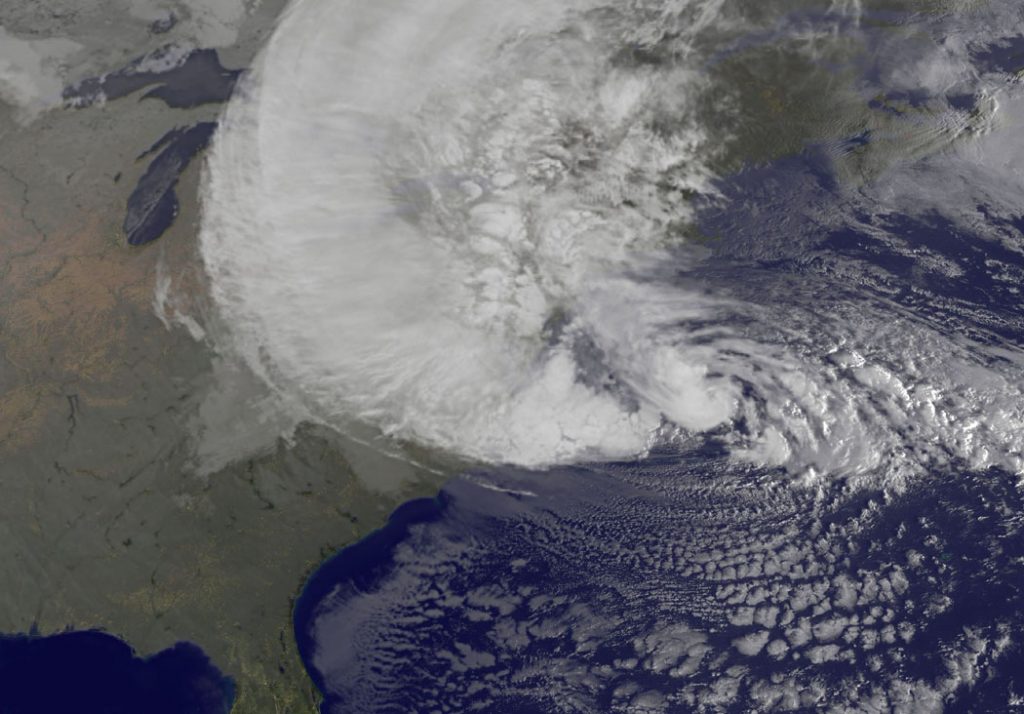Girt round with rugged mountains the fair Lake Constance lies;
In her blue heart reflected, shine back the starry skies;
And, watching each white cloudlet float silently and slow,
You think a piece of heaven lies on our earth below!
Midnight is there; and silence, enthroned in heaven, looks down
Upon her own calm mirror, upon a sleeping town:
For Bregenz, that quaint city upon the Tyrol shore,
Has stood above Lake Constance a thousand years and more.
Her battlements and towers, upon their rocky steep,
Have cast their trembling shadows for ages on the deep;
Mountain and lake and valley, a sacred legend know,
Of how the town was saved one night, three hundred years ago.
Far from her home and kindred a Tyrol maid had fled,
To serve in the Swiss valleys, and toil for daily bread;
And every year that fleeted so silently and fast
Seem’d to bear further from her the memory of the past.
She served kind, gentle masters, nor ask’d for rest or change;
Her friends seem’d no more new ones, their speech seem’d no more strange;
And, when she led her cattle to pasture every day,
She ceased to look and wonder on which side Bregenz lay.
She spoke no more of Bregenz, with longing and with tears;
Her Tyrol home seem’d faded in a deep mist of years;
She heeded not the rumors of Austrian war or strife;
Each day she rose, contented, to the calm toils of life.
Yet, when her master’s children would clustering round her stand,
She sang them the old ballads of her own native land;
And, when at morn and evening she knelt before God’s throne,
The accents of her childhood rose to her lips alone.
And so she dwelt: the valley more peaceful year by year;
When suddenly strange portents of some great deed seem’d near.
The golden corn was bending upon its fragile stalk,
While farmers, heedless of their fields, paced up and down in talk.
The men seem’d stern and alter’d, with looks cast on the ground;
With anxious faces, one by one, the women gather’d round;
All talk of flax, or spinning, or work, was put away;
The very children seem’d afraid to go alone to play.
One day, out in the meadow with strangers from the town,
Some secret plan discussing, the men walk’d up and down.
Yet now and then seem’d watching a strange, uncertain gleam,
That look’d like lances ‘mid the trees that stood below the stream.
At eve they all assembled, all care and doubt were fled;
With jovial laugh they feasted, the board was nobly spread.
The elder of the village rose up, his glass in hand,
And cried, “We drink the downfall of an accursed land!
“The night is growing darker; ere one more day is flown
Bregenz, our foeman’s stronghold, Bregenz shall be our own!”
The women shrank in terror, (yet pride, too, had her part,)
But one poor Tyrol maiden felt death within her heart.
Before her stood fair Bregenz, once more her towers arose;
What were the friends beside her? Only her country’s foes!
The faces of her kinsfolk, the days of childhood flown,
The echoes of her mountains, reclaim’d her as their own!
Nothing she heard around her, (though shouts rang forth again,)
Gone were the green Swiss valleys, the pasture, and the plain;
Before her eyes one vision, and in her heart one cry,
That said, “Go forth, save Bregenz, and then, if need be, die!”
With trembling haste and breathless, with noiseless step she sped;
Horses and weary cattle were standing in the shed;
She loosed the strong white charger, that fed from out her hand,
She mounted and she turn’d his head towards her native land.
Out — out into the darkness — faster, and still more fast;
The smooth grass flies behind her, the chestnut wood is pass’d;
She looks up; clouds are heavy: Why is her steed so slow? —
Scarcely the wind beside them can pass them as they go.
“Faster!” she cries, “O, faster!” Eleven the church-bells chime:
“O God,” she cries, “help Bregenz, and bring me there in time!”
But louder than bells’ ringing, or lowing of the kine,
Grows nearer in the midnight the rushing of the Rhine.
Shall not the roaring waters their headlong gallop check?
The steed draws back in terror, she leans above his neck
To watch the flowing darkness, the bank is high and steep;
One pause, — he staggers forward, and plunges in the deep.
She strives to pierce the blackness, and looser throws the rein;
Her steed must breast the waters that dash above his mane;
How gallantly, how nobly, he struggles through the foam,
And see, in the far distance shine out the lights of home!
Up the steep bank he bears her, and now they rush again
Toward the heights of Bregenz, that tower above the plain.
They reach the gate of Bregenz just as the midnight rings,
And out come serf and soldier to meet the news she brings.
Bregenz is saved! Ere daylight her battlements are mann’d;
Defiance greets the army that marches on the land:
And, if to deeds heroic should endless fame be paid,
Bregenz does well to honor the noble Tyrol maid.
Three hundred years are vanish’d, and yet upon the hill
An old stone gateway rises, to do her honor still.
And there, when Bregenz women sit spinning in the shade,
They see in quaint old carving the charger and the maid.
And when to guard old Bregenz, by gateway, street, and tower,
The warder paces all night long, and calls each passing hour:
“Nine,” “ten,” “eleven,” he cries aloud, and then (O crown of fame!)
When midnight pauses in the skies he calls the maiden’s name.
On top of being a great poem, I think this is also a great example of the dangers of immigration. Despite her long years away, and being well treated by the natives, this young woman’s loyalty remained with her home when it came down to time to choose. How much more will those who fly the foreign flags of their home country on their car mirrors and outlines of their homeland on the rear window, choose their home country as they don’t even pretend to integrate.
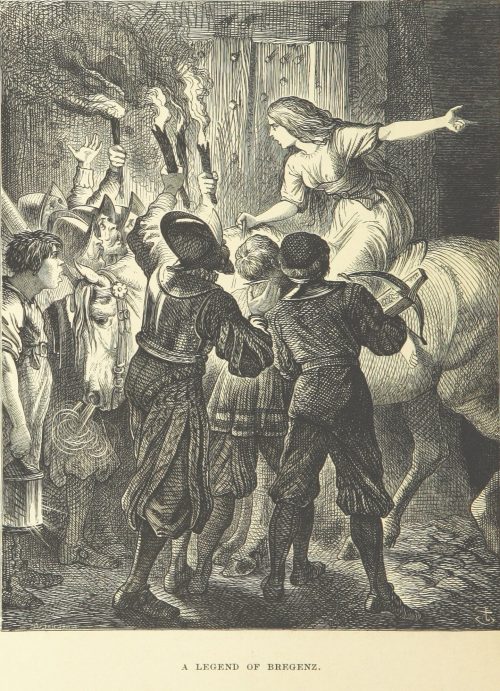
A Legend of Bregenz
Latest from Literature

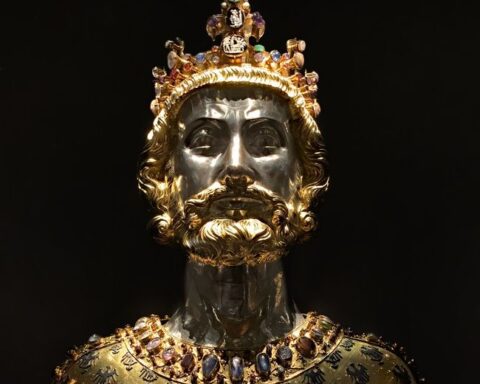
Legends of Charlemagne
His fame has been enhanced and magnified through a host of ballads and romances.
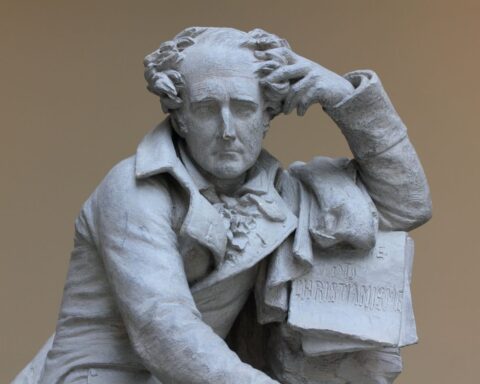
Chateaubriand (Part 2)
His journey in 1806, from Paris to Greece, Constantinople, Palestine, Egypt, and Carthage.

Old Ways
Editor’s note: Originally posted by Last Redoubt at https://lastredoubt.substack.com/p/old-ways Paper has a lot of problems. It’s bulky. It catches fire. More to the point, if I want to send something on paper
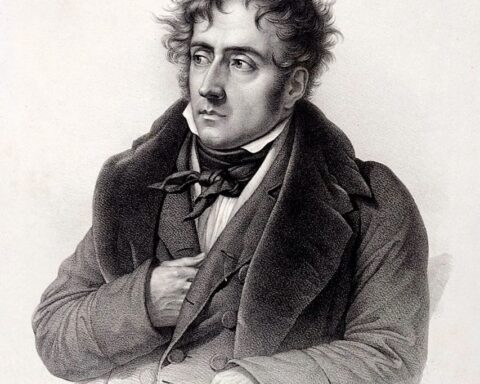
Chateaubriand (Part 1)
"It was in these disastrous days that Chateaubriand arose, and bent the force of his lofty mind to restore the fallen but imperishable faith of his fathers."


